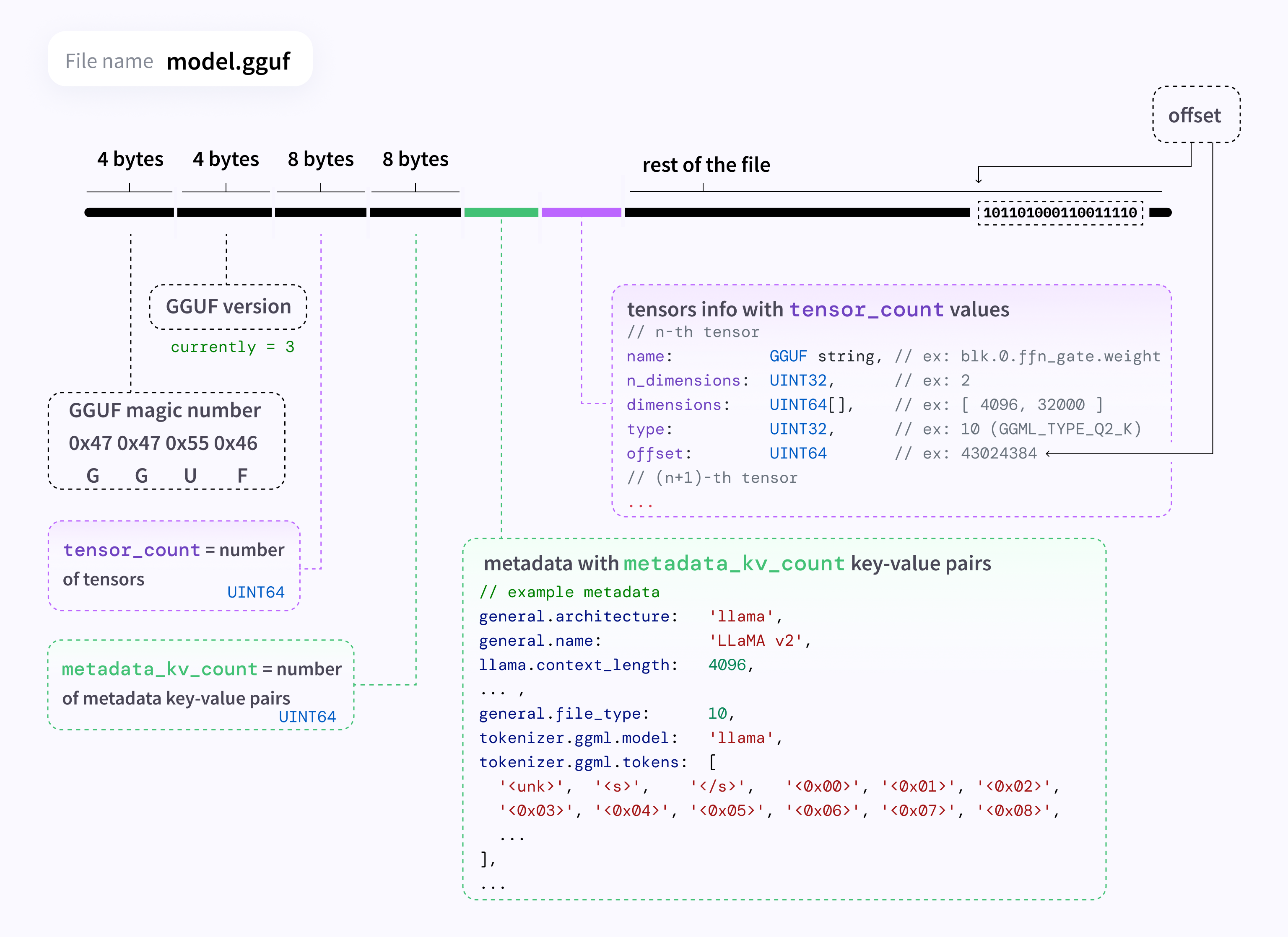
Security News
Oracle Drags Its Feet in the JavaScript Trademark Dispute
Oracle seeks to dismiss fraud claims in the JavaScript trademark dispute, delaying the case and avoiding questions about its right to the name.
@huggingface/gguf
Advanced tools
@huggingface/ggufA GGUF parser that works on remotely hosted files.

Spec: https://github.com/ggerganov/ggml/blob/master/docs/gguf.md
Reference implementation (Python): https://github.com/ggerganov/llama.cpp/blob/master/gguf-py/gguf/gguf_reader.py
npm install @huggingface/gguf
import { GGMLQuantizationType, gguf } from "@huggingface/gguf";
// remote GGUF file from https://huggingface.co/TheBloke/Llama-2-7B-Chat-GGUF
const URL_LLAMA = "https://huggingface.co/TheBloke/Llama-2-7B-Chat-GGUF/resolve/191239b/llama-2-7b-chat.Q2_K.gguf";
const { metadata, tensorInfos } = await gguf(URL_LLAMA);
console.log(metadata);
// {
// version: 2,
// tensor_count: 291n,
// kv_count: 19n,
// "general.architecture": "llama",
// "general.file_type": 10,
// "general.name": "LLaMA v2",
// ...
// }
console.log(tensorInfos);
// [
// {
// name: "token_embd.weight",
// shape: [4096n, 32000n],
// dtype: GGMLQuantizationType.Q2_K,
// },
// ... ,
// {
// name: "output_norm.weight",
// shape: [4096n],
// dtype: GGMLQuantizationType.F32,
// }
// ]
// Reading a local file. (Not supported on browser)
const { metadata, tensorInfos } = await gguf(
'./my_model.gguf',
{ allowLocalFile: true },
);
By default, known fields in metadata are typed. This includes various fields found in llama.cpp, whisper.cpp and ggml.
const { metadata, tensorInfos } = await gguf(URL_MODEL);
// Type check for model architecture at runtime
if (metadata["general.architecture"] === "llama") {
// "llama.attention.head_count" is a valid key for llama architecture, this is typed as a number
console.log(model["llama.attention.head_count"]);
// "mamba.ssm.conv_kernel" is an invalid key, because it requires model architecture to be mamba
console.log(model["mamba.ssm.conv_kernel"]); // error
}
Because GGUF format can be used to store tensors, we can technically use it for other usages. For example, storing control vectors, lora weights, etc.
In case you want to use your own GGUF metadata structure, you can disable strict typing by casting the parse output to GGUFParseOutput<{ strict: false }>:
const { metadata, tensorInfos }: GGUFParseOutput<{ strict: false }> = await gguf(URL_LLAMA);
The Hub supports all file formats and has built-in features for GGUF format.
Find more information at: http://hf.co/docs/hub/gguf.
🔥❤️
FAQs
a GGUF parser that works on remotely hosted files
We found that @huggingface/gguf demonstrated a healthy version release cadence and project activity because the last version was released less than a year ago. It has 4 open source maintainers collaborating on the project.
Did you know?

Socket for GitHub automatically highlights issues in each pull request and monitors the health of all your open source dependencies. Discover the contents of your packages and block harmful activity before you install or update your dependencies.

Security News
Oracle seeks to dismiss fraud claims in the JavaScript trademark dispute, delaying the case and avoiding questions about its right to the name.

Security News
The Linux Foundation is warning open source developers that compliance with global sanctions is mandatory, highlighting legal risks and restrictions on contributions.

Security News
Maven Central now validates Sigstore signatures, making it easier for developers to verify the provenance of Java packages.